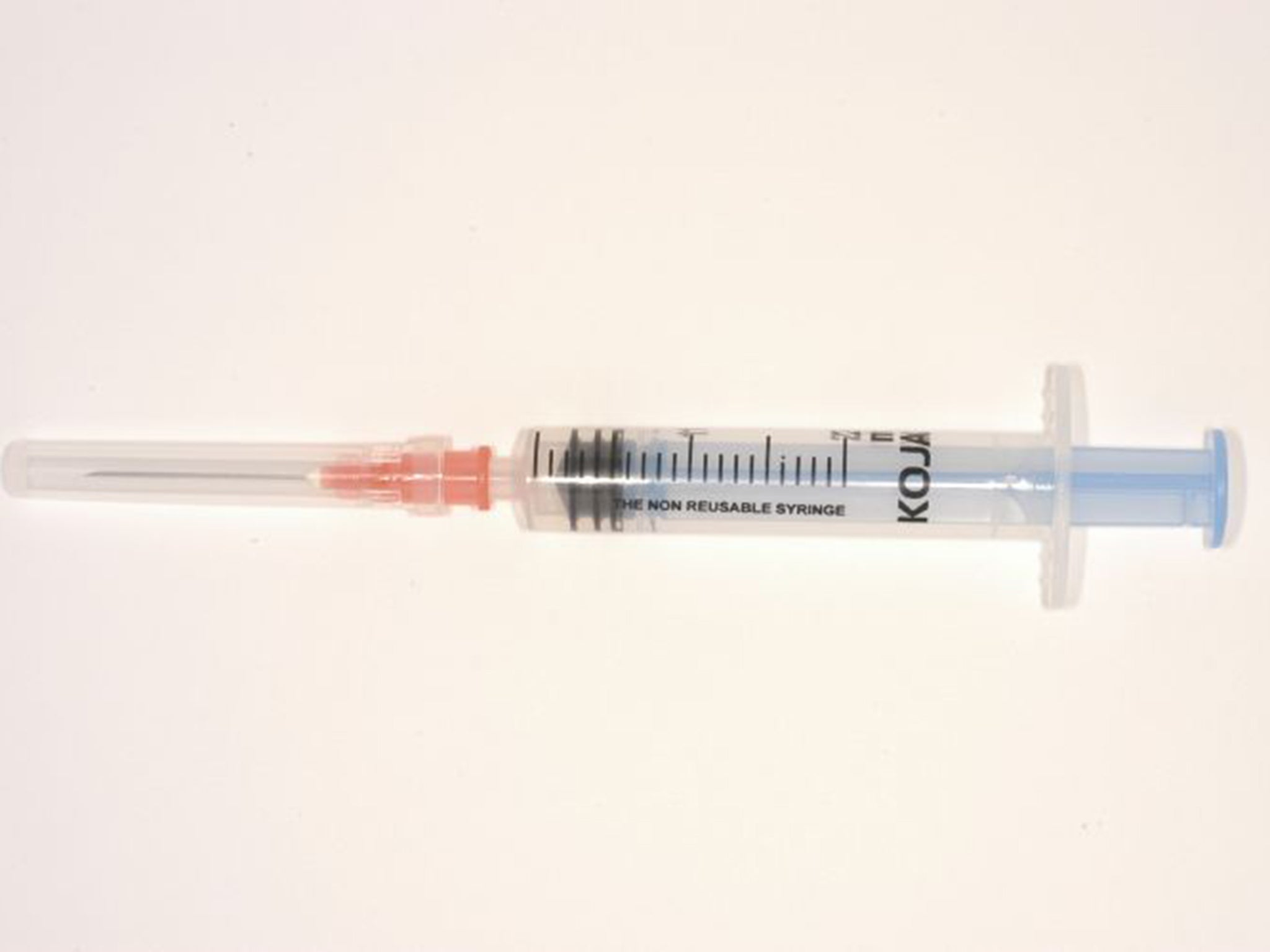Inventor Marc Koska’s one-use syringe is endorsed by WHO
LifeSaver Syringe immediately breaks if the user tries to pull back the plunger for a second use

Your support helps us to tell the story
From reproductive rights to climate change to Big Tech, The Independent is on the ground when the story is developing. Whether it's investigating the financials of Elon Musk's pro-Trump PAC or producing our latest documentary, 'The A Word', which shines a light on the American women fighting for reproductive rights, we know how important it is to parse out the facts from the messaging.
At such a critical moment in US history, we need reporters on the ground. Your donation allows us to keep sending journalists to speak to both sides of the story.
The Independent is trusted by Americans across the entire political spectrum. And unlike many other quality news outlets, we choose not to lock Americans out of our reporting and analysis with paywalls. We believe quality journalism should be available to everyone, paid for by those who can afford it.
Your support makes all the difference.A British painter and decorator who turned inventor has spoken of his pride as his one-use syringe, which has been 30 years in the making, has been endorsed by the World Health Organisation (WHO).
Marc Koska, 53, from Danehill in East Sussex, said he had the idea to create an auto-disable syringe after reading a newspaper article about the spread of HIV through shared needles.
The design that he eventually came up with – the LifeSaver Syringe, which immediately breaks if the user tries to pull back the plunger for a second use – is already being used in dozens of developing countries, where it has saved countless lives.
The new WHO policy will mean that all countries will have to use so-called “smart” syringes by 2020, and it is encouraging manufacturers to start making them as soon as possible.
A recent WHO-sponsored study estimated that in 2010 up to 1.7 million people were infected with hepatitis B, up to 315,000 with hepatitis C, and as many as 33,800 had HIV transmitted, through unsafe injections.
Mr Koska, who also formed the SafePoint charity in 2006 to spread the message of the dangers of reusing needles, said he has been to 64 developing countries in the past 10 years where he has seen his invention used.
He described the WHO endorsement of his syringe as a “watershed moment”.
Join our commenting forum
Join thought-provoking conversations, follow other Independent readers and see their replies
Comments